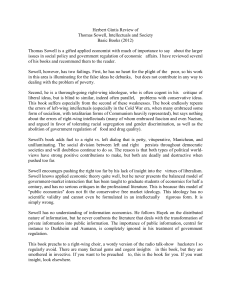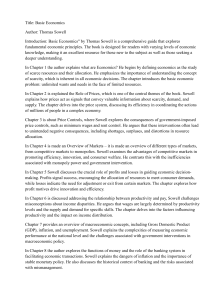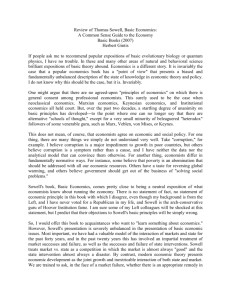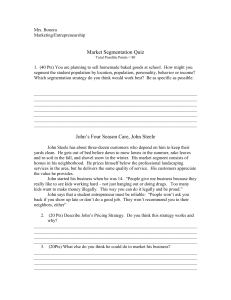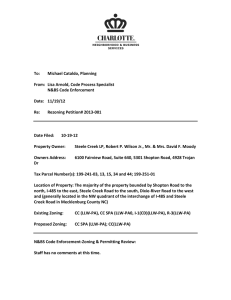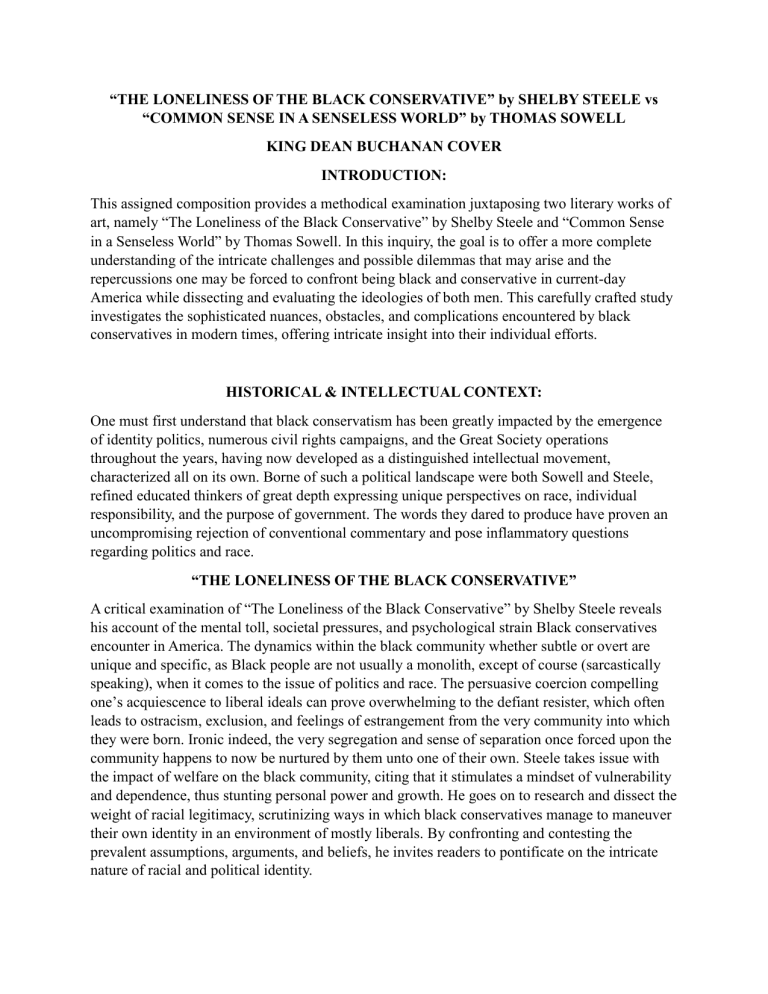
“THE LONELINESS OF THE BLACK CONSERVATIVE” by SHELBY STEELE vs “COMMON SENSE IN A SENSELESS WORLD” by THOMAS SOWELL KING DEAN BUCHANAN COVER INTRODUCTION: This assigned composition provides a methodical examination juxtaposing two literary works of art, namely “The Loneliness of the Black Conservative” by Shelby Steele and “Common Sense in a Senseless World” by Thomas Sowell. In this inquiry, the goal is to offer a more complete understanding of the intricate challenges and possible dilemmas that may arise and the repercussions one may be forced to confront being black and conservative in current-day America while dissecting and evaluating the ideologies of both men. This carefully crafted study investigates the sophisticated nuances, obstacles, and complications encountered by black conservatives in modern times, offering intricate insight into their individual efforts. HISTORICAL & INTELLECTUAL CONTEXT: One must first understand that black conservatism has been greatly impacted by the emergence of identity politics, numerous civil rights campaigns, and the Great Society operations throughout the years, having now developed as a distinguished intellectual movement, characterized all on its own. Borne of such a political landscape were both Sowell and Steele, refined educated thinkers of great depth expressing unique perspectives on race, individual responsibility, and the purpose of government. The words they dared to produce have proven an uncompromising rejection of conventional commentary and pose inflammatory questions regarding politics and race. “THE LONELINESS OF THE BLACK CONSERVATIVE” A critical examination of “The Loneliness of the Black Conservative” by Shelby Steele reveals his account of the mental toll, societal pressures, and psychological strain Black conservatives encounter in America. The dynamics within the black community whether subtle or overt are unique and specific, as Black people are not usually a monolith, except of course (sarcastically speaking), when it comes to the issue of politics and race. The persuasive coercion compelling one’s acquiescence to liberal ideals can prove overwhelming to the defiant resister, which often leads to ostracism, exclusion, and feelings of estrangement from the very community into which they were born. Ironic indeed, the very segregation and sense of separation once forced upon the community happens to now be nurtured by them unto one of their own. Steele takes issue with the impact of welfare on the black community, citing that it stimulates a mindset of vulnerability and dependence, thus stunting personal power and growth. He goes on to research and dissect the weight of racial legitimacy, scrutinizing ways in which black conservatives manage to maneuver their own identity in an environment of mostly liberals. By confronting and contesting the prevalent assumptions, arguments, and beliefs, he invites readers to pontificate on the intricate nature of racial and political identity. “COMMON SENSE IN A SENSELESS WORLD” Thomas Sowell’s “Common Sense in a Senseless World” performs a detailed, fastidious inspection, probing the issue of race filtered through the lens of economic concepts. Sowell places a strong emphasis on the importance of cultural and human agency in determining socioeconomic results. He disputes popular theories about racial inequality, contending that these theories frequently simplify complicated social realities. The notion of affirmative action is scrupulously explored as Sowell queries its efficiency and unforeseen repercussions. Furthermore, he indicates and emphasizes ways in which governmental procedures affect black communities. Sowell also investigates ways in which academia impacts public opinions and societal debates. Readers are challenged by the works of Sowell, to review and evaluate traditional prudence, research contrasting hypotheses for social inequities, and recommend reassessment with the possible overhaul of governmental operations. CONTRASTING PERSPECTIVES: Comparing the divergent viewpoints, it may be noted that the creations of Sowell and Steele bear many conflicts in approach, with respect to matters such as factors of culture, racial integrity, and the function of governmental agencies. Steele focuses on the internal dynamics of the black community, arguing for the necessity of challenging liberal orthodoxy. He highlights the importance of individual agency and personal responsibility as pathways to empowerment. In contrast, Sowell places greater emphasis on the broader socioeconomic context, asserting that cultural factors and historical legacies shape outcomes. While Steele critiques the welfare state, Sowell offers a broader critique of government intervention, advocating for limited government and emphasizing the unintended consequences of well-intentioned policies. These differing perspectives enrich the discourse surrounding black conservatism, encouraging critical engagement with prevailing ideologies and prompting readers to reconsider the factors that contribute to disparities within society. IMPACT & LEGACY: The works of Sowell and Steele have had a profound impact on the discourse surrounding black conservatism. They have stimulated conversations within academia, influenced policy debates, and challenged prevailing narratives on race and politics. By presenting nuanced and thoughtprovoking arguments, they have expanded the intellectual landscape and created space for alternate perspectives. Far beyond the scope of black conservatism, the arguments of Sowell and Steele remain influential in discussions about politics, conservatism, free will, and governance. Their initiatives have triggered everyone from academics and social reformists to zealots, inspiring them to simply pause and reflect on the relationship between individuality, philosophy, and social evolution enabling a deeper, more enhanced comprehension of the hurdles faced by today’s black conservative. SUMMARY/CONCLUSION: This report has provided an in-depth comparison of Thomas Sowell’s “Common Sense in a Senseless World” and Shelby Steele’s “The Loneliness of the Black Conservative.” By comparing their perspectives, philosophies, and arguments this analysis has illuminated the challenges, complications, and possible implications of being a black conservative today. The contributions of Steele and Sowell have greatly enhanced the discussion about black conservatism. They have most definitely confronted the prevalent narrations and stimulated critical engagement, encouraging future studies, scrutiny, inquiries, and debates on the junction of politics, race, and individual responsibility. REFERENCES: Steele, Shelby. “The Loneliness of the Black Conservative.” Hoover Institution, Stanford University, 2021, www.hoover.org/research/loneliness-black-conservative. Accessed 10 June 2023. “Common Sense in a Senseless World.” YouTube, uploaded by FreeToChooseNetwork, 15 Mar.2021, www.youtube.com/watch?v=WK4M9iJrgto&ab channel=FreeToChooseNetwork. Accessed 8 June 2023.
